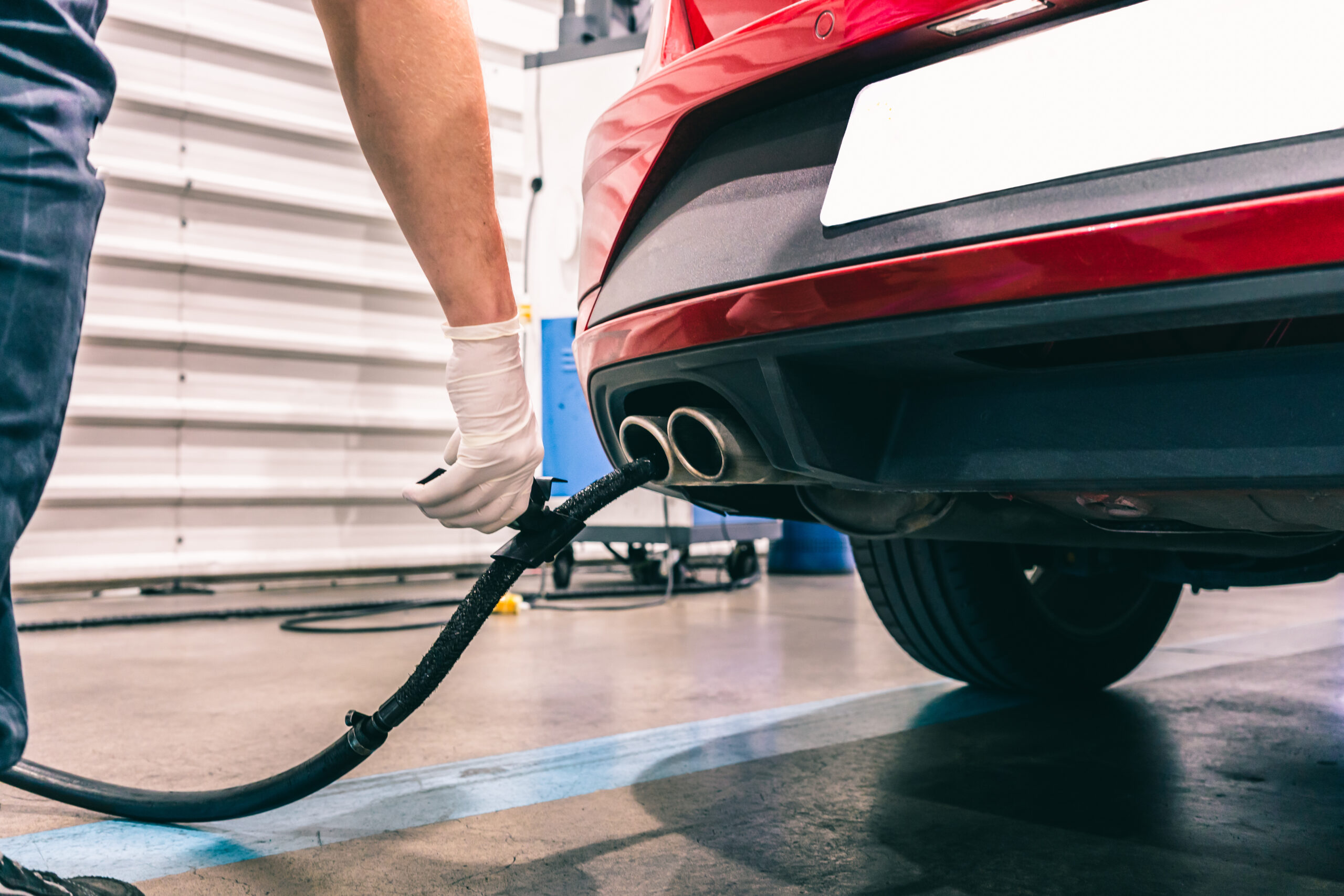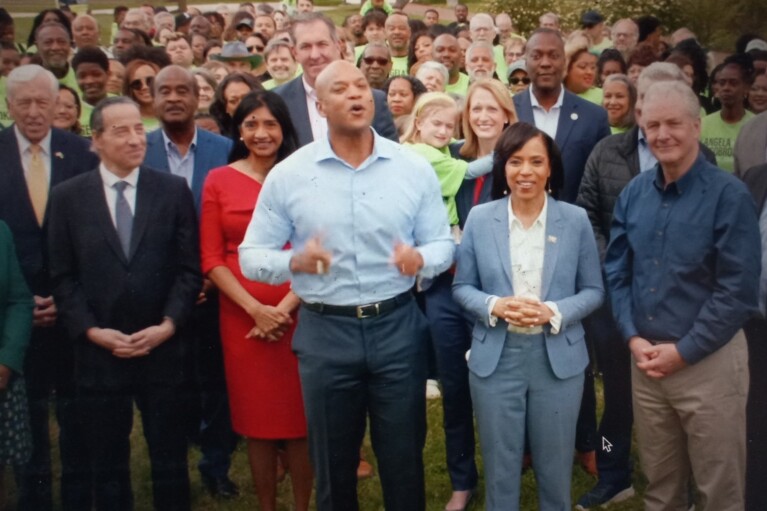State proceeding with contract to change vehicle emissions inspection program

Soon after Gov. Wes Moore (D) took office this year, his administration hit pause on a proposed contract that would have ratified a rule to significantly change the state’s long-running vehicle emissions inspection program.
Administration officials at the time said they wanted to make sure the new rule, which had been advanced by the Motor Vehicles Administration (MVA) and Department of the Environment under former Gov. Larry Hogan (R), would not hinder the state’s ability to curtail tailpipe emissions or prove to be unfair to poorer communities that bear the brunt of air pollution in the state.
After half a year of study and outreach, the Moore administration has decided to proceed with the proposed contract. Now it is scheduled for a vote at the next Board of Public Works’ meeting on Sept. 6, after having been pulled from the BPW meeting on Aug. 23.
The most significant change coming to the VEIP program, assuming the three-member Board of Public Works goes along next week: New vehicles, which under the old rule had to first be tested for emissions when they were three years old, now won’t have to tested until they have been on the road for six years. So when the new rule kicks in, likely in late September or early October, the newest cars that have to be tested are the 2018 model year vehicles. Currently, 2021 model year cars must get the emissions inspection.
Most older cars, including hybrid vehicles, will continue to have to be tested every two years. Electric vehicles do not have to be tested.
In a video conversation with reporters Thursday, state officials said they were confident the new rule would not impact the state’s ability to combat auto emissions or have environmental justice implications for poorer communities, where residents are considered less likely to own new cars.
“Typically, with the technology in automobiles today, 99% of vehicles will pass the test,” said Maryland Environment Secretary Serena McIlwain.
McIlwain said that states have a variety of strategies when it comes to testing new vehicles. In California, where she served until recently as deputy environment secretary, new cars do not have to be tested for eight years. Delaware doesn’t require a test for seven years, McIlwain said, while Virginia requires new cars to be tested after three years.
“From my perspective, it makes sense to push it out as far as we can,” she said.
Vehicle emissions tests have become a staple of life for motorists in most of Maryland’s counties for almost four decades. The biennial tests, which once involved running cars on the functional equivalent of a treadmill for a few minutes, and now feature a suction device stuck in the auto’s gas tank, cost $14 if they’re done at testing centers, and $10 at self service kiosks.
While the Moore administration earlier this year couched its decision to postpone implementing the Hogan rule in starchy bureaucratic language, it was clear that administration officials and key lawmakers worried that the proposed changes could have profound implications for equity, the environment, and the state budget.
Christine Nizer, administrator at the MVA, said Thursday that requiring fewer vehicles to take an emissions test would cost the state about $3 million in annual revenues. She said there are about 758,000 registered model year 2018 and 2019 vehicles in Maryland among the more than 5 million vehicles that are on the road.
More important, Nizer said, the state in recent months has conducted rigorous studies to ensure that Maryland’s environmental justice communities aren’t being unduly impacted by the regulatory change.
“We couldn’t find anything from a data standpoint to show that this would harm any segment of the Maryland population,” she said.
The contract that the Board of Public Works is scheduled to vote on Wednesday essentially alters the current pact to operate the VEIP program with Envirotest, a Halethorpe company that has been running the inspections for several years, and extends it until September 2024. At that point, the state will take bids to run VEIP on a longer-term basis.
The board was originally scheduled to vote on the proposed contract at its last meeting, but deferred the item because Comptroller Brooke Lierman (D) was going to be absent and had some questions about the proposal, according to multiple state officials. Adam Abadir, a spokesperson for Lierman, said last week that the comptroller merely wanted to do “due diligence” before voting on the contract.
In private conversations over the past few weeks, several state legislators and environmental groups said they had questions about the proposed changes to VEIP. Nizer and McIlwain said the administration has been reaching out to stakeholders over the past several days to explain what the new contract would do.
Assuming the proposed contract is approved, it is expected to take Envirotest a couple of weeks to reprogram the emissions tests before the six-year rule goes into effect, Nizer said.




 Creative Commons Attribution
Creative Commons Attribution